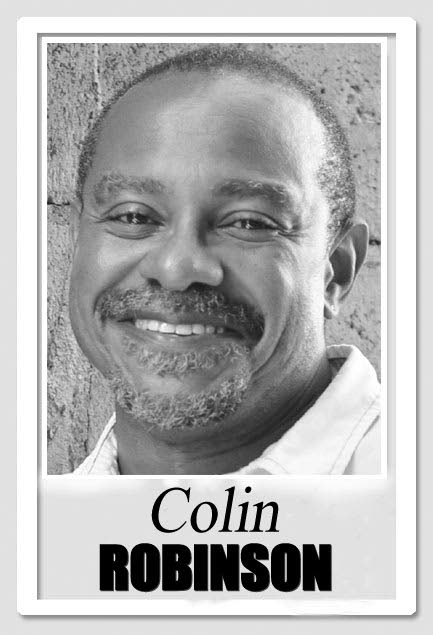Your first colonoscopy

Are you 50 or over? Have you had your first one? We both did.
My mother had a colon tumour
I was 57 when I had my mine.
I had joined my sister in unsuccessfully nagging my 80-something mother for years to get one. But I had never done one myself.
Two decades after Mummy’s surgery and chemotherapy for breast cancer, she’d developed chronic gastric distress and wasting. We’d eventually had an expensive CT scan done. It found tumours in both her liver and colon. She died in weeks.
I was 53. My sister was into coffee enemas and other ideas about what constitutes intestinal health. But I dismissed them. I had a good relationship with my primary care physician in Port of Spain. We were colleagues, I trusted his professional expertise, I had his mobile number, he saw lots of gay men. Getting an appointment was easy and quick. And he’d raised uncomfortable health issues with me: sexual intercourse, high blood pressure, my prostate markers.
I’d turned 50 in his care. He’d recommended my mom’s gastroenterologist after the scan. Yet never once did we talk about me, colon cancer or colonoscopies.
Colonoscopy…Never!
“Have you had your colonoscopy yet?” my doctor asked, scrolling through the checklist of tests. I was 51, but hadn’t had the test considered standard for everyone in the US 50 and over. Provided you have health insurance, of course.
“No.”
I was none too thrilled about the prospect. I remembered my mother’s colonoscopy. It never happened. Her blood pressure rose so high the doctors abandoned the procedure. The idea of a colonoscopy was as unpleasant for me, so I put it off for another few years. I investigated the possibility of virtual screening and faecal occult blood technologies; but none were covered by my insurance.
When a friend asked me to accompany her to her colonoscopy, I accepted. I would experience the procedure without any of the pain or discomfort. I was pleasantly surprised it was short and painless, which allayed some of my irrational fears,
Still, the test required effort: low-fiber foods; stopping some supplements before, and drugs two days after the procedure, and the famous bowel prep. A plastic gallon-sized jug in which to mix a polyethylene glycol solution to be taken the night before and the morning of the colonoscopy, with the warning if I didn’t drink the whole thing, my colon would not be clean enough for the test to be effective. The pharmacist cheerfully asked my choice of flavour — the red is a salty Kool-Aid.
While the irrepressible urge to go to the bathroom and the long periods evacuating copious amounts of intestinal sludge persist, newer bowel cleanse formulations are far more tolerable in volume, taste and nausea.
By 55, I had bitten the bullet. Twenty minutes after I changed into the hospital gown, they were waking me to the good news that all the polyps they found and removed were benign.
“Have you had a colonoscopy?” my new gastroenterologist, noting my age, asked as she ran through the battery of tests to diagnose the month-long bellyache disabling me. “Ruling out the big things that can kill you,” she continued playfully.
“You deserve a colonoscopy,” she chimed in response to my no.
The procedure itself was the easiest. Though the prep was a whooole adventure — one I’d undergo next time with a care partner. The results were where I needed the partner, though. The physicians found a large colon tumour they assume had been around undetected for some years. My sister didn’t say I told you so, and held my hand.
The silent killer
My doctor had explained just how crucial colonoscopies are. In her words, colon cancer is “the silent killer” which often goes undetected until it is far advanced. A colonoscopy is the only way to detect the disease in the early stages. It uncovers and removes polyps, which could potentially develop into cancerous tumours.
Yet, for six months, I had neglected to schedule my second colonoscopy. Reluctance and foot dragging metastasised into panic and dread with my brother’s colonoscopy. Doctors had noted our characterisation of Mummy’s end-stage tumours as metastatic breast cancer, pointing out breast cancer doesn’t usually metastasise to the colon. We were a family predisposed to this form of cancer, and my own lifelong digestive issues had become more acute and difficult to manage in recent months.
So frayed were my nerves that I made a loud scene in the doctor’s office to get an early appointment. I got a second clean bill of health, and additional polyps removed. I have more motivation to get my next colonoscopy
Imagine if I had been screened, like my sister, at 55 and not 57.
At 53, my age when she was screened, when we found my mother’s tumour.
Or at 50. When we all should.
Charmaine Robinson makes sure that Colin goes to his health screenings on time.


Comments
"Your first colonoscopy"